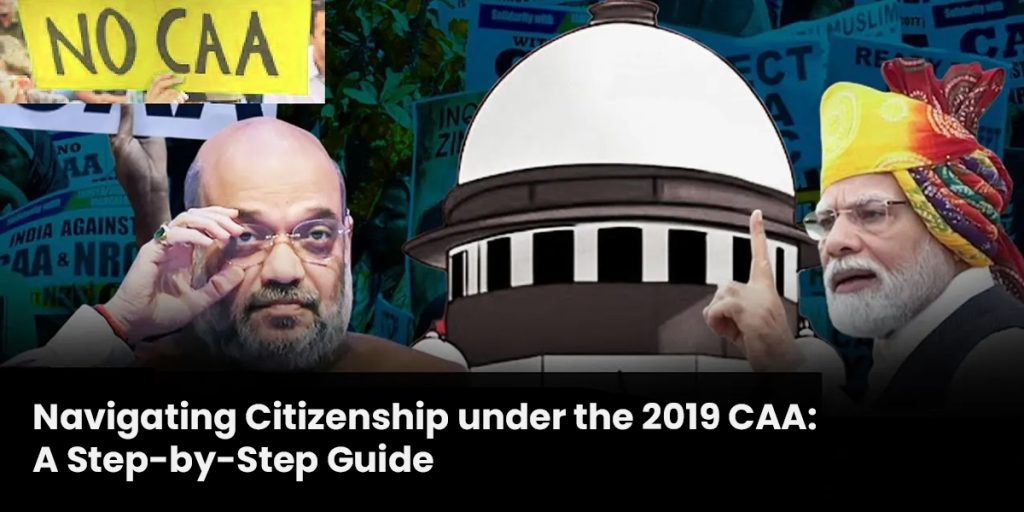Citizenship under the 2019 CAA: A step-by-step guide
In December 2019, the Indian Parliament passed the Citizenship Amendment Act (CAA) which marked a major breakthrough in Indian citizenship law. This law provides a path to citizenship for immigrants from specific religious groups in neighboring countries. Here are the detailed instructions on how to apply for citizenship under CAA through the dedicated Indian Citizenship online portal:
1. Accessing the online portal
To start your application process, visit the Indian Citizenship Online Portal and click on “Click to apply for Indian Citizenship under CAA 2019”.
2. Provide key information
Enter your mobile number and CAPTCHA code as prompted, then proceed to the next page.
3. Providing detailed information
Then, provide your email ID, full name, and CAPTCHA code on the page.
4. Explanation and honesty
Click the submit button to continue. After some time, check both your email and mobile to see if the OTP (One Time Password) is available. Enter these OTPs for authentication, along with the supplied CAPTCHA code.
5. Further research
Enter the CAPTCHA code again for additional authentication purposes.
6. New access and loyalty
Access the login window by entering your email ID or mobile number along with the CAPTCHA code. Click “Continue”. You will then get a new OTP on your registered mobile number for further verification. Enter this OTP and re-enter the CAPTCHA code to proceed.
7. When you start a new application
If successful, it will give you access to the “Click here to launch a new application” option.
8. Background information
Include your background information on the application, including your 2014 pre-residency, place of origin and length of stay.
Procedure after application
Once submitted, your application will be reviewed by the District Committee under the supervision of a designated officer. This committee will verify the authenticity of your application and process the testimonials and affidavits.
An oath of allegiance
If the documents are carefully reviewed, the appointed officer will swear loyalty to you. The officer shall then sign the affidavit of loyalty and submit it electronically to the authorized committee along with the affidavit.
He does not interfere
If you are unable to appear in person to be sworn in despite having several opportunities, the district committee reserves the right to refer your application to an authorized committee for further consideration.
Documents Required
Make sure you have passports, birth certificates, and other identification documents issued by the governments of Afghanistan, Bangladesh, or Pakistan, as well as all the documents you need for your application. These documents must show that you have visited India on or before 31 December 2014.
Book options
For individuals without the necessary documents, valid or expired documents from Afghanistan, Bangladesh and Pakistan are accepted. Additionally, certificates or residence permits issued by the Foreign District Registration Office or the Foreign Registration Officer in India are valid.
Possible influences and exclusions
Since the passage of CAA, there has been mixed reactions and widespread opposition. However, the government clarified that it had no impact
Several states, including West Bengal, Kerala, Punjab, Rajasthan, Chhattisgarh and Bihar, have previously passed resolutions against the Act. The approval of the CAA led to widespread protests in 2019 and 2020 due to concerns about exclusion and perceived legitimisation of migrants.
Will CAA affect rights of Indian citizens?
The government has assured that the Act does not affect the rights of Indian citizens. It also does not alter the legal process of acquiring Indian citizenship by any foreigner. The CAA excludes areas covered by the Sixth Schedule and the Inner Line Permit system, ensuring protection of the indigenous population of the Northeastern states.
Applicants should have been in India continuously for 12 months and provide the addresses of where they have stayed for the last 14 years.



